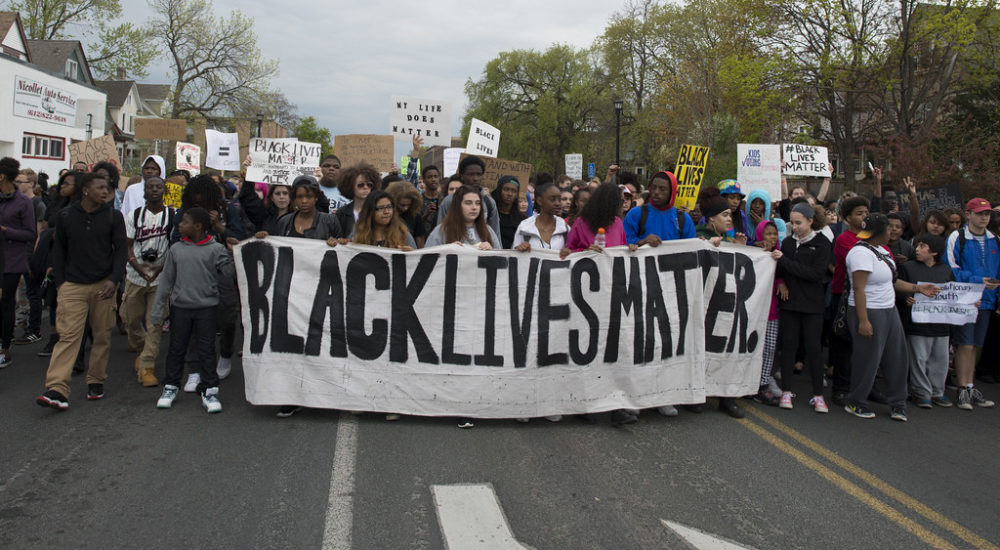TEAMBOOST stands in solidarity with our Black colleagues, students, families, and communities. We love you. We support you. We are here for you.
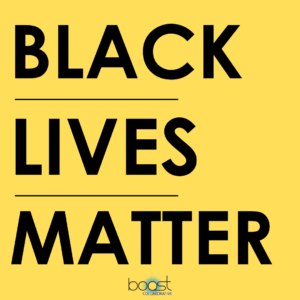
Today, we are recommitting to our fight for racial justice, inclusion, and equity. Going forward, we will continue to take meaningful action toward positive change. Over the years, we’ve sought out powerful Black voices to educate, inspire, and uplift the BOOST community. We hope you’ll take some time to listen, read, and continue your anti-racism education alongside us.
We’ll continue to share resources, and elevate the voices of BIPOC and other marginalized communities across all of our platforms. We invite you stay connected with us on Facebook, Twitter, and Instagram, visit the BOOST Cafe Resource Center, and engage in conversation on the BOOST Cafe Forum. Ubuntu.
Dr. Shawn Ginwright’s 2019 BOOST Conference Keynote
TED Talk by Bryan Stevenson, 2018 BOOST Conference Keynote Speaker
TED Talk by Dr. Nadine Burke Harris
VIDEO: Bettina Love vividly explains the difference between allies and co-conspirators in the fight for justice.
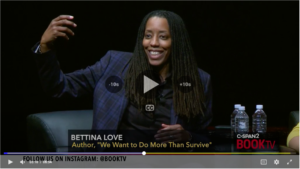
Education Post: Teachers Must Hold Themselves Accountable for Dismantling Racial Oppression
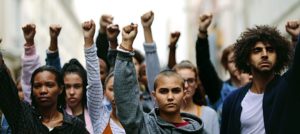
Image: Education Post
I am tired, but although we may be worn out, we must NEVER give out! I believe that now, more than ever, educators have a responsibility to hold themselves individually, and hold others mutually accountable to the repair of our country and race relations.
National Museum of African American History & Culture: Being Anti-Racist

Image: Smithsonian
Race does not biologically exist, yet how we identify with race is so powerful, it influences our experiences and shapes our lives. In a society that privileges white people and whiteness, racist ideas are considered normal throughout our media, culture, social systems, and institutions. Being antiracist is fighting against racism. Racism takes several forms and works most often in tandem with at least one other form to reinforce racist ideas, behavior, and policy.
Refinery29: Your Black Colleagues May Look Like They’re Okay — Chances Are They’re Not
Over the last few months, Black people have not only watched their friends and family members die at higher rates from the coronavirus, they have also watched people who look like them be gunned down while going for a jog, be murdered in their homes, threatened while bird watching in Central Park, and mercilessly choked on camera.
And every day, we have woken up and answered the emails and gotten on the Zoom calls. We’ve showed up with a smile, and put the pain and fear behind us. We’ve swallowed the rage while responding to our bosses, and offered the assistance and worked twice as hard for half as much — because that’s all we know how to do.
Teaching Tolerance: Affirming Black Lives Without Inducing Trauma
Educators have a responsibility to engage with students about this violence against Black men—and the white supremacist systems that allow it to continue. But they must do so without re-traumatizing Black students and with extra care for their mental health. These resources can help.
Dr. Bettina Love: GET FREE — Hip Hop Civics Ed
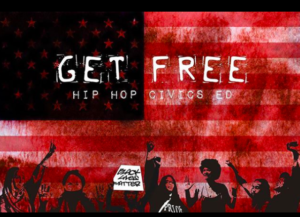
Image: GET FREE
GET FREE is a multimedia Hip Hop civics curriculum for youth and young adults. Its goal is to introduce students to a national network of young community leaders, artists, and activists who advocate for social change and democratic inclusion driven by grassroots organizing. GET FREE is inspired by the exuberance, ingenuity, political energy, resistance, love, and DIY model of underground Hip Hop. Its aim is to push and extend ideas of democracy, citizenship, freedom, community, civic engagement, and intersectional justice.
NPR: Talking Race With Young Children

Image: LA Johnson/NPR
Even babies notice differences like skin color, eye shape and hair texture. Learn ways to handle conversations about race, racism, diversity and inclusion, even with very young children.
